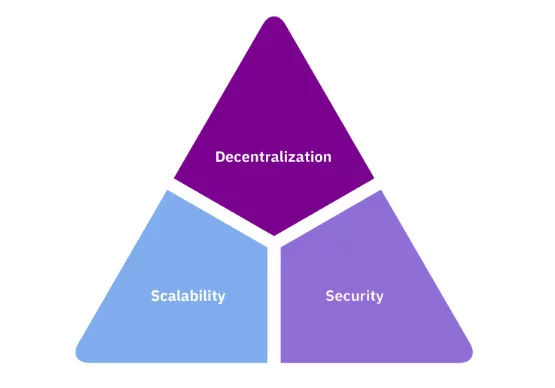Introduction to Algorand
This module provides an overview of Algorand's inception, its goals, its unique position in the blockchain space, the Pure Proof-of-Stake (PPoS) consensus mechanism, and its approach to balancing scalability, security, and decentralization.

Algorand is a blockchain platform created by Silvio Micali, a Turing Award-winning cryptographer. Its vision centers on creating a “borderless economy”, through a concept that focuses on enabling individuals and organizations to transact, innovate, and build without restrictions imposed by geography or technology.
The platform is designed to balance scalability, security, and decentralization while promoting accessibility for all participants, supporting a wide range of applications, including decentralized finance (DeFi), non-fungible tokens (NFTs), supply chain solutions, and enterprise-grade use cases. Algorand uses Pure Proof-of-Stake (PPoS) protocol, which allows every participant with a stake in the network to contribute to its operations, ensuring fairness in the consensus process and avoiding the concentration of power often seen in other systems.
Algorand is designed to support a broad spectrum of use cases, from decentralized finance (DeFi) applications to enterprise-grade solutions. Its architecture includes smart contract capabilities and features like Algorand Standard Assets (ASA), which allow users to tokenize assets easily. By providing these functionalities, Algorand bridges the gap between developers and end users, enabling them to build and interact with applications that are scalable, secure, and reliable.
Algorand’s Pure Proof-of-Stake (PPoS) Consensus Mechanism
The PPoS consensus mechanism is a standout feature of Algorand. Unlike traditional Proof-of-Stake (PoS) systems, PPoS prioritizes fairness and inclusivity. Every ALGO token holder has a chance to influence the consensus process, with selection probabilities proportional to their stake. This design ensures that no single entity can dominate the network, enhancing decentralization.
The consensus mechanism follows three main steps:
- Block Proposal: A single token holder is randomly selected to propose a new block. This process is both quick and energy-efficient.
- Soft Voting: A randomly chosen committee of participants reviews the proposed block to ensure it meets the necessary requirements.
- Certification Voting: A final committee certifies the block, securing it and adding it to the blockchain.
These steps are optimized to ensure transaction finality within seconds, while simultaneously protecting the network from attacks. The reliance on randomness, driven by cryptographic Verifiable Random Functions (VRFs), makes manipulation virtually impossible.

Addressing the Blockchain Trilemma

The blockchain trilemma—scalability, security, and decentralization—has long been a challenge for most platforms. Algorand approaches this issue in the following ways:
- Scalability: The network processes thousands of transactions per second (TPS), with block finality achieved in just a few seconds. This is possible due to its efficient consensus protocol, which avoids bottlenecks.
- Security: The PPoS mechanism is resilient against attacks, particularly those targeting block finalization. By relying on randomly selected participants, it prevents bad actors from predicting or manipulating consensus outcomes.
- Decentralization: Any ALGO holder can participate in the consensus process, ensuring that control is distributed rather than concentrated among large stakeholders. This promotes fairness across the network.
Algorand’s ability to effectively balance these three factors has positioned it as a reliable solution for diverse applications in finance, gaming, supply chain, and beyond.
Highlights
- Algorand was founded to address inefficiencies in existing blockchain platforms, aiming for a borderless, decentralized economy.
- The platform positions itself as a scalable and environmentally friendly Layer-1 blockchain.
- Its Pure Proof-of-Stake (PPoS) mechanism enhances fairness, decentralization, and security.
- The network’s design focuses on fast transaction processing and finality without compromising user participation.
- Algorand addresses the blockchain trilemma by balancing scalability, security, and decentralization effectively.





